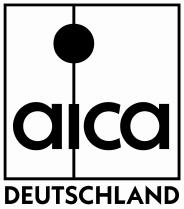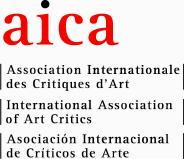Topic
Art criticism: its duties - its crisis
With the theme „Art Criticism in Times of Populism and Nationalism“, this year‘s congress is dedicated to a critical examination of art as a socially embedded yet aesthetically free form of expression.
Populist tendencies, regardless of their colour, characterize the contemporary media landscape in many places, as well art and cultural criticism. Discussions about the removal of controversial works of art or the infiltration of the #metoo debate into the art discourse take their place in reporting. Ethical evaluation criteria are brought to the fore when artists consciously make provocative or seemingly naive cultural appropriations with their works and actions. But where and how does the border to the curtailment of artistic freedom of expression run?
Art is a reflection of society with all its tensions and aberrations. It reflects current discussions, particularly on gender issues, climate, racism and post-colonialism, provocatively or affirmatively. The art scene has been accustomed to political activism since the beginning of the 21st century: Christoph Schlingensief, the occupy movement, the Center for Political Beauty or Peng! - The use of populist methods avant la lettre could be attested to them. However, it is not these border-splashing lateral spirits, who demand a new ethical model of society - which ultimately concerns us all - who are in the focus of contemporary art criticism, but images that violate ethical values. In the hustle and bustle of identity discoveries, ethical demands - whether rightly or wrongly - are suddenly made on historical and contemporary works of art. What is called for is a revised reading of even older works that have long belonged to the established canon of art history, as if we were about to experience a new iconoclasm or write a new index of forbidden works.
What influence does it have on art criticism if moral values that generate convictions flow into the judgement and per se limit the autonomy of art?How should it evaluate in the crossfire of opposing criteria? What will become of the hard-earned freedom of art that is enshrined in the German constitutional law, when different sides demand the suspension of works of art and even their destruction? Does art criticism itself possibly have a share in populist decisions in dealing with art by occasionally failing to define evaluation criteria for the protection of works that, for example, lie in the context of their historical development?
Self-critically, it is necessary to ask whether art criticism still dares to offer differentiated features of orientation. The breakthrough of social media also has serious consequences for the profession of art critic. All too often, readers around the world have become accustomed to short, up-to-date texts that can be quickly consumed. Against the background of electronic distribution, the decline in the circulation of printed media continues dramatically, making publishers increasingly dependent on the advertising business and on a supposed zeitgeist of scarce content. In the cultural sector, advertisements are placed to a large extent by museums, which are hoping for rather positive reporting in return.
Publishers - in all sectors - therefore attach less and less importance to sophisticated feuilletons and critical cultural reports, with the result that cultural journalism has been fighting for years for sheer survival. Only a few journalists today still have the privilege of a solid permanent position - as a guarantor of freedom of opinion. The freelancers are forced to teach at academies and to work as curators or authors for museum catalogues. This, in turn, has a very significant impact on free, critical reporting.
AICA is also affected by this development: There are only a few real cultural editors left in our ranks. It is therefore our task to initiate a dialogue, to name the problems emphatically and to draw attention to them in favor of free art criticism.
Danièle Perrier
Art Criticism - Populism and Nationalism
Welcome to the 52nd International AICA Congress, a project by AICA Germany in Cooperation with the German Federal Cultural Foundation.
The Congress will take place from October 1st – 7th October 2019 in Cologne and Berlin.
The Highlight in Cologne will be granting the Prize for Distinguished Art Criticism to a well-known art critic in Germany at Museum Ludwig in Cologne. The first two days in Cologne are dedicated to the administrative tasks of AICA International. If you want to join the congress in Cologne and are not involved with commissions as well as the administration council, you will be able to register for visits at prominent regional galleries and institutions. (only if there are at least 8 participants) Guests are welcome.
On Thursday morning, (Oct. 3rd) we will take the rapid train ICE at 8.44 a. m., which arrives at 1.05 p. m. at Berlin main station. Please book your reservation asap, as there are no other good connections in order to arrive in Berlin in time for the beginning of the congress at 3.30 p.m.
The opening ceremony of the congress itself will take place on October 3rd at Hamburger Bahnhof in Berlin. On the 4th and 5th the congress will be hosted by the Berlinische Galerie.The Congress theme Art Criticism in times of Populism and Nationalism addresses some virulent issues concerning the role of art criticism from different points of views.
Populism shapes the contemporary media landscape and the field of art as well as cultural criticism. There are many discussions about the removal of controversial works of art and the influence of the #MeToo debate in the art. Ethical evaluation criteria are implemented, where women artists* consciously make provocative or seemingly naïve cultural appropriations with their works and actions. But where and how far do limitations of artistic freedom of expression go? What does the clash between the ethical and aesthetic say about our understanding of politically "responsible" art and „responsible“ art-critical approaches?
Our congress is dedicated to the possibilities of critical commitment for art as a socially embedded yet aesthetically free form of expression.
It is based on a diversity of points of views and provides moderated discussions after each presentation or after two controversial lectures. We want scientists, artists, authors, journalists to have their say and actively involve the audience. Not only the lectures, but also the resulting discussions will be recorded in the congress files.
Our programme currently envisages asking first about nuances in the conceptual understanding of populism in culture and politics, discussing populist lines of argument in the context of post-colonialism and investigating the effects of populism and nationalism in art-critical practice on the basis of case studies - both nationally and internationally. The thematic complex of censorship will also be introduced to the congress in reports by colleagues from various countries. The last day will be devoted to methods and formats of art criticism that may be considered as experiment in a special way by addressing or involving their audience. It will also deal with the role of (digital) distribution and the instrumentalization of art criticism in connection with the opening and closing of democratic public spaces.
From the 39 applicants who answered the call for papers, our international jury has selected 11 participants. We are looking forward to having long discussions with them and speakers invited and hope that you will get involved in these debates.







